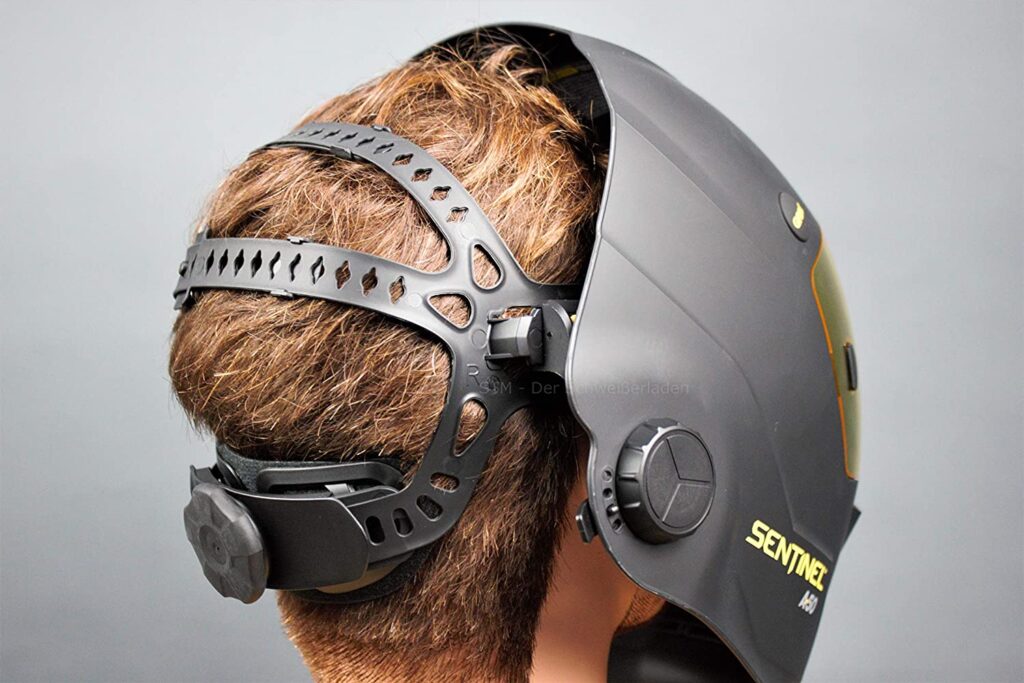10 Essential Tools Every New Welder NeedsThe Architecture Designs

Welding is expensive. Wrong!
Getting the right tools is key when considering welding as a career or hobby. Welding is only expensive when you get carried away with buying tools without knowing the essentials that you need. Welding Supplies from IOC has the essential tools that every welder should have. You find yourself buying multiple tools, most of which you can do without at the early stages of learning welding.
This article will highlight the most important tools you need for a new welder. The list will cover safety, measuring, and other working tools. Let’s get to it!
The 10 Essential Tools You Need
Knowing these essential tools will bust the myth of breaking the bank as a new welder. Here are ten essential tools you need to get started as a welder.
Welding Helmet
source: pinterest.com
A welding helmet is the most important welding tool that you must have. Without it, you can’t start welding. It protects your eyes, face, and neck from burns, sparks, intense heat, infrared light, and ultraviolet light. You can choose between passive and auto-darkening welding helmets.
Passive welding helmet. The passive welding helmet has basic functions. Its lenses will only protect you from ultraviolet and infrared light. If you use fixed welding material and a fixed soldering process for your work, this helmet will work just fine for you.
Auto-darkening welding helmet. On the other hand, the auto-darkening helmet is heat resistant and will protect you from harmful radiation and UV and infrared light. It is ideal because, as the name suggests, the lenses will detect bright light and automatically adjust. Beginners will find it helpful because the level of shading will adjust to different welding practices.
Welding Gloves
source: pinterest.com
Safety is the order of the day when it comes to welding. You might get away with just any safety glove with other hardware vocations. But as a welder, you need specialized welding gloves to protect yourself from burns.
Welding gloves are insulated and will have multiple layers of thick fabric. These layers protect you from heat burns and stray sparks during the welding. You can use either of the following welding gloves depending on your type of welding.
MIG welding gloves. This type of glove has thicker material with extra padding on the back. It protects your resting hand during the welding process. A looser fitting design allows you to throw off the gloves if it gets too hot easily.
TIG welding gloves. These gloves are generally thinner and softer than MIG welding gloves. With TIG welding, precision is vital. The TIG welding gloves have a tighter fit that allows precise movement while holding the rod and the welding torch.
Safety Glasses
You notice small sparks flying off the grinding disk when welding, especially using angle grinders. Safety glasses are made from durable plastic and will stop sparks from flying. You can also get a grinding face shield to protect your face and neck from flying sparks.
A Welding Table Or a Workbench
source: pinterest.com
Though it is common to see welders working on the ground, it is not a safe or professional practice. Working on the ground is impracticable and uncomfortable. It may also jeopardize your safety during the welding process.
As a new welder, you need to get a solid surface that will serve as a welding table or workbench. You can also get a portable workbench that is mobile for instances where you have to work in a client’s space instead of your workstation. An effective welding table will simplify your work.
Welding Magnets
Welding magnets are one of the most versatile tools in your welding tool kit. Metal pieces are held together with welding magnets, especially where metal clamps may not apply. Welding magnets come in different sizes, and the great thing about this tool is that the more you use it, the more uses you have.
Welding Clamps
They are an essential tool for holding pieces of metal together before welding. A new welder will need multiple pieces of welding clamps, depending on the complexity of your project. Without using clamps, the metal warpage from welding will kick your project out of shape.
Here are the steps for using welding clamps
Cut your metal pieces.
Tightly fit the pieces together
Use your welding clamps to hold them in place
Tack weld at the clamp angles
Remove the clamps
Lay the final welding
Speed Square
source: pinterest.com
A speed square is an essential tool that every new welder must have. It is an angular measuring device shaped like a right-angled triangle and allows multiple forms of measuring. You can use it to measure a 90-degree angle and other perpendicular angles.
Angle Grinder
Angle grinders are more than essential; they are a necessity. There is no welding project you can complete without using an angle grinder. Trying to work without one will make your work slow and ineffective.
Grinding, cutting pieces of metal, or smoothing out the weld at the end of a project are done with angle grinders.
Sheet Metal Gauge
source: pinterest.com
A sheet metal gauge is also a measuring tool used to know the thickness of your metal. It is a steel metal resembling a small wheel with teeth. Spaces between the teeth of the wheel are different widths and labeled with various standard widths on the sheet metal.
This tool is essential because before you start any project, you need to know the thickness of the metal. It is easier to avoid errors by measuring the thickness of the metal. The thickness will also determine the setting of the weld.
Metal File
You’ve probably used a file, whether a nail or metal file. Files are a great finishing tool for any project. In welding, the principal use of a metal file is to remove the rough edges and burrs from the cut metal. An angular grinder is also quite good for smoothening the edges of your metal. But a metal file is ideal for smoothening smaller pieces and edges to make your project look neater.
For the most part
There are over a hundred tools that you can add to your welding workshop as you grow. But as a beginner or a new welder, this list contains the ten fundamental tools you need to start any project.
The post 10 Essential Tools Every New Welder Needs appeared first on The Architecture Designs.





